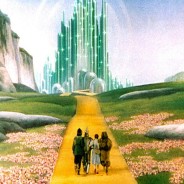Posted by Diane Morrow on March 25, 2007 in Recommended Books
Lynne Cox, author of Swimming to Antarctica: Tales of a Long-Distance Swimmer, strikes me as a kind of ideal heroine for this month in which I’m writing about quest. There’s a kind of purity—a single-mindedness—to her narrative that has a certain appeal. She’s one of those rare people who discovered her own personal quest—her purpose in life—at the age of nine. And then she had the good fortune, and the good sense, and the persistence, to be able to carry this out. One summer morning, as she tells it, and when she was only nine years old, she found herself in an icy-cold swimming pool in Manchester, New Hampshire, swimming laps in the middle of a storm. She was there by choice. All the other swimmers in her club had begged the coach to get out of the water, leaping at his alternative proposal of two hours of calisthenics in the locker room. This was a serious swim club. Those children who had fled the cold water for the locker room could look forward to upwards of 500 sit-ups, 200 push-ups, and 500 leg extensions. Lynne Cox stayed in the water. When it began to hail, she stopped her laps and crouched in a corner next to the steps and covered her face with her hands. When the hail changed over to heavy rain she went back to swimming laps, entirely alone in the pool, hailstones floating around her in what she describes as a “giant bowl of icy tapioca.” She wasn’t one of the fastest swimmers on the team. She was, by her own description, chubby, and because she was slower than many of the others, she rarely got a chance to pause at the wall of the pool for breaks the way the others did. What she had was endurance. And a love of the water that was nothing short of extreme. She was nine years old, swimming through ice-water that everyone else had fled, and, rather than being frightened of the storm, she was exhilarated by it: The pool was no longer a flat, boring rectangle of blue; it was now a place of constant change. . . . That day, I realized that nature was strong, beautiful, dramatic, and wonderful, and being out in the water during that storm made me feel somehow a part of it, somehow connected to it. A Mrs. Milligan saw the tail end of this three-hour swim from her car in the parking lot. She was the mother of another girl on the team, a fast girl who had already qualified for nationals. When Lynne Cox finally climbed out of the pool, Mrs. Milligan met her with a large towel. She rubbed Lynne’s back with the towel, at the same time speaking into her ear: “Someday, Lynne, you’re going to swim across the English Channel.” Lynne Cox did swim across the English Channel. A mere six years later, when she was only fifteen, she set a world record, swimming the channel in nine hours and fifty-seven minutes. A few years later she swam across the Cook Strait in New Zealand. Not long after, she became the first person in the world to swim the Strait of Magellan, a body of water between the tip of Chile and the island of...
read more

